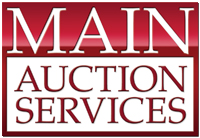Have You Tasted Your Water Recently?
Water Filtration Systems May Be Required

We celebrated a very special anniversary and made reservations at a fine dining restaurant recommended and a favorite in our region. Ambiance was spectacular, food was great but our drinks and water were not; they tasted wierd and seemed cloudy. The iced water served in a crystal stemmed glass was a complete turnoff. It tasted terrible. We were tempted to call the manager at that visit but we chose to go online and report it to the district manager so it would be known. A tragic discovery for us as our guests couldn't believe it; and many of those will not return. 5Star dining prices mean nothing should be overlooked. So, when was the last time you tasted the water your restaurant is using to cook with and serve to your dining patrons. There’s no food prep, drinking, cooking or cleanup without water. Your customers drink it, it powers your combis and steamers, and it cleans and sanitizes your dishware, glassware, utensils, pots and pans. How do you fare in today's water exam.
Water appears to be a unique and transparent concept, but we restaurant owners know the flow is never just H2O. The shimmery liquid also contains minerals like calcium and magnesium (the amount determines the “hardness” of the water), chemicals such as chlorine and chloramines (a chlorine-ammonia compound) added for purification, and suspended solids and sediment. Many of these are problematic in foodservices, and getting rid of them means filtration. What isn't filtered may ruin your new restaurant equipment with mineral buildup and yes, the dreaded molds in ice machines without it.
Filtration Tech:
Different uses of water require different filtration technologies. For espresso and coffee, the Specialty Coffee Association of America details specs for water hardness and total dissolved solids. They also suggest and mandate a near-absence of chlorine and chloramines. For post-mix soda machines, the real goal is removal of sediment as well as chlorine and chloramines; beverage companies have their own specs. Combis and steamers are very sensitive to the calcium or magnesium in hard water as well as to chloramines. In ice machines, water should be as clean as possible with no sediment that could harm the machines’ pumps or seals. For warewashers, it’s important to remove minerals that could cause scale in the machines and spots on glassware. Filter tap water to remove chlorine or chloramines, sediment and other contaminants such as bacteria or parasites.
How much do you really know about the water in your city coming into your facility. A tremendous difference in the composition of city water from one area to another also complicates selecting filter systems. To find out what’s in yours, inquire at your local water district. Maybe you can call your suppliers or food brokers and ask them to work with the manufacturer of your filtration system; some companies offer a test kit that you can mail back for analysis.
It is possible that the new system that was the right choice a few years ago may not be right today. In the past few years, many municipalities have switched from chlorine to chloramines as a safer and more effective disinfectant. (Some use chloramines only part of the year.) Chloramines can affect the taste of water and can corrode steam equipment and weaken seals, but it’s harder to remove from water than chlorine, and requires a special carbon filter.
News in water filtration is essential. More-efficient reverse osmosis systems, in which water drips through a fine membrane that catches impurities is a consideration. Older systems were slow and wasted water, but dramatically improved technology means RO filtration is now in more widespread use.
The truth of the matter is water, it’s complicated. Choose the right filtration system for each of your operation’s needs by calling a professional. In the meantime, here are some time tested things you need to check into before you call a professional.
Why Maintenance Is Essential -
- No filtration system will solve your water issues for long without proper maintenance. Without it, you’ll eventually run into any number of problems, from off tastes in ice, water, coffee or fountain drinks to low water pressure, equipment downtime and unplanned service calls to shortened equipment life as a result of corrosion. In other words, higher input costs, reduced sales or both.
- Filter Switch Ritual - Maintenance of a water filtration system mostly comes down to three words: change the filter regularly! Periodic analysis of water quality is another good idea. Filters have a lifespan capacity. In an area where you don’t have a lot of suspended solids to plug up the filter, the fact that you have apparently clean water coming out can give you a false sense of security.
- What Else To Know - In addition to periodically checking for reduced water flow or pressure, be sure that you examine closely for water leaks, unusual discoloration of water or a buildup of pre-filter or post-filter residue on components. Monitor water-using equipment for corrosion or scale buildup.
What Can Mandate A Change - Regularly maintaining your filtration system, means you can’t expect it to last forever. Manufacturers typically offer a five-year warranty, although systems can last longer. Take a look at this list that might make it advantageous to upgrade to a new system before the old one gives out include:
- If you have changes in your menu or the number of covers per day
- Is there installation of new water-using equipment
- Has a change occurred in your municipal water supply
- Review and discover an advance in filtration technology that could benefit you
Take good care to regularly maintain your water filtration system and customers will better enjoy beverages and your equipment will run more efficiently and last longer. Remember that chlorine filter maintenance water water filtration will dramatically effect your kitchen, patrons, and equipment. Make sure it is a positive change that will enhance your service to the public.
Main Auction Services, Inc. invites you visit our facilities located in Dallas & Houston to view our retail showrooms and auction facilities to preview our in stock inventory. With new restaurant equipment, used restaurant equipment, wholesale kitchen equipment, superior styles and types of barware supplies and smalls, you can view our high volume wholesale inventory turn-over.
Our goal is to make sure that we meet your restaurant, bakery and bar equipment needs. On a budget? Call Us Right Now and ask about Austin & San Antonio equipment… in Dallas at 972-642-0513 or in Houston at 713-690-1231






